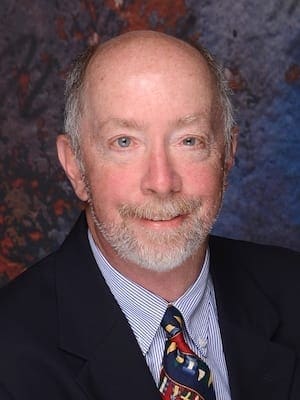We live in a time when people seem to have a lot to say and say it with great conviction. This is good; we need to care about things.
We sometimes, however, confuse having a reaction to something with really caring about it, caring to the point where we are willing to make a sacrifice. The resulting danger is we mistake confrontation for authentic communication; they are not the same thing.
Confrontation begins with differences and disagreements; it does not begin with commonalities. It quickly incites animosity and even violence.
Frederick Streets, a Baptist professor of theology at Yale University, suggested that violent behavior is any action that intentionally or unintentionally demeans or destroys another human being or their property. Violent behavior is best understood by its impact on others.
Thus, speech can be an act of violence if it demeans or destroys another. The aim of “violent” speech is to silence, marginalize or intimidate our adversary.
Simply because our cause is just does not mean we are free to engage in speech and acts that seek to demean or destroy others. Such speech or action resolves nothing and leaves in its wake further alienation. It is designed to suppress communication.
I am not suggesting that we deny differences and ignore outrages. I am suggesting that we begin in a place that may lead to progress and even healing.
Redemptive communication begins with seeking out what we have in common. Martin Luther King Jr. believed that he had an ally in the heart of his adversary. Thus, his strategy was not to silence or injure but to engage people – even those opposing him – in conversation.
This communication took the form of direct action, but still it was not designed to intimidate or silence or demean. King respected the common humanity of his adversary.
As “identity politics” becomes a central paradigm of our thinking, we lose sight of the immediate issues and begin to question the intrinsic value of those whom we feel do not share our common interest.
We sometimes have to search hard to find some commonalities between us and those with whom we disagree.
A good beginning point is our common creator. Within each of us, sometimes buried so deeply it is almost impossible to discern, is the image of God.
Jesus told us to love our enemy. I think he was encouraging us to find some bridge between us and those with whom we disagree by seeing them as brothers and sisters in the common human family.
John Paul Lederbach writes about the difference between looking and seeing in “The Little Book of Conflict Transformation.” To look is to draw attention to or pay attention to something.
Lederbach writes, “To see, on the other hand, is to look beyond and deeper. Seeing seeks insight and understanding. In everyday language, we say, ‘Do you see what I mean?’ Understanding is the process of creating meaning. Meaning requires that we bring something into sharper focus.”
It is possible to understand positions and passions that we do not share.
Redemptive communication does not begin with a certainty of our own rectitude and possession of the truth. Rather, it begins with a humility that fosters trust, a humility born of an awareness of our own limitations.
Listening to others as if what they think matters builds trust that leads to better conversation. This is hard to do when what we hear is threatening or offensive.
Nonetheless, we must steel ourselves for what we find objectionable, remembering that our conversation partner may be experiencing us in the same way.
Believers sometimes make common cause with others who are not operating out of the love-your-enemy ethic. It is OK to join with people who are working toward similar goals.
We must not, however, uncritically adopt their methodologies. They are free to act in ways that we, as Christians, are not.
When we look into the face of another, we strive to see the image of God in them. This is a labor of love, which means, sometimes, it is work to do so. Even when we cannot see that resemblance, we believe by faith that it is there.
Jim Kelsey is executive minister of the American Baptist Churches-New York State. A version of this article first appeared on his blog and is used with permission.

